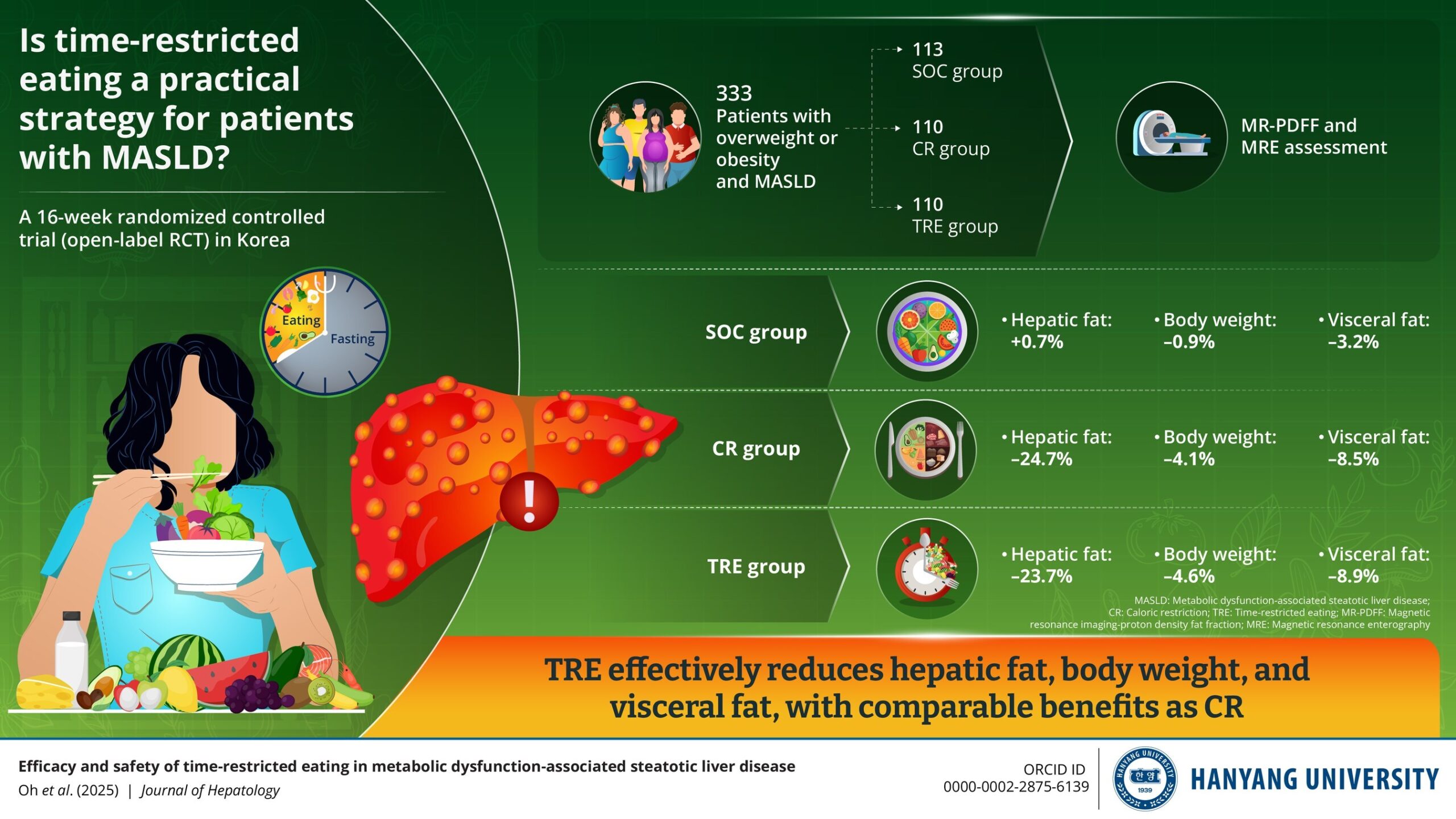A recent study from Hanyang University has shown promising results regarding the use of time-restricted eating (TRE) as a dietary strategy for patients with metabolic dysfunction-associated steatotic liver disease (MASLD). Conducted in Seoul, South Korea, the research highlights how TRE can effectively reduce liver fat and improve overall health in individuals affected by this condition.
Time-restricted eating is a form of intermittent fasting that limits the hours during which individuals consume their daily calories. This approach has been associated with various health benefits, including improved weight management and insulin sensitivity. The findings of this study suggest that TRE may serve as a practical method for managing MASLD, a condition characterized by excessive fat accumulation in the liver linked to metabolic risk factors.
Study Design and Findings
The research, published on June 19, 2025, in the Journal of Hepatology, involved participants who were overweight or obese and diagnosed with MASLD. They were randomized into three groups: the standard of care (SOC) group, which served as the control; the calorie restriction (CR) group; and the TRE group. The study aimed to analyze the impact of these dietary strategies on hepatic steatosis, as well as various physical and biochemical parameters.
Results indicated that participants in both the TRE and CR groups experienced significant reductions in hepatic steatosis, body weight, and visceral fat. Importantly, no serious adverse events were reported in either group. The TRE participants achieved these improvements without adhering to specific diets, such as the Mediterranean diet, simply by limiting their eating hours.
Professor Dae Won Jun, who led the research team, emphasized the study’s goal: “What is the most effective and sustainable dietary approach for patients with MASLD? We wanted to find an answer to this question.”
Dr. Joo Hyun Oh, another researcher involved in the study, noted that TRE could be particularly advantageous for Asian populations, stating, “Our study suggests that TRE may be more practical and easier to follow.”
Implications for Dietary Strategies
While both TRE and CR demonstrated effectiveness in managing MASLD, changes in blood glucose, cholesterol levels, and sleep duration were comparable between the two groups. This finding suggests that although TRE improves liver fat and function, it may not offer additional metabolic or sleep-related benefits beyond those provided by CR.
As global obesity rates continue to rise, effective dietary guidance is essential. The insights gleaned from this study aim to address misconceptions surrounding unproven dietary trends. Individuals facing metabolic challenges are encouraged to select eating patterns that align with their lifestyles and preferences.
Looking ahead, the findings of this research may pave the way for personalized dietary strategies tailored to individual routines, cultural backgrounds, and specific health needs. Such approaches could contribute significantly to achieving sustainable weight management and preventing metabolic diseases.
For further details, the full study is available in the Journal of Hepatology, DOI: 10.1016/j.jhep.2025.06.005.
Hanyang University continues to be a leader in health research, providing valuable insights that can influence dietary practices and public health strategies.







